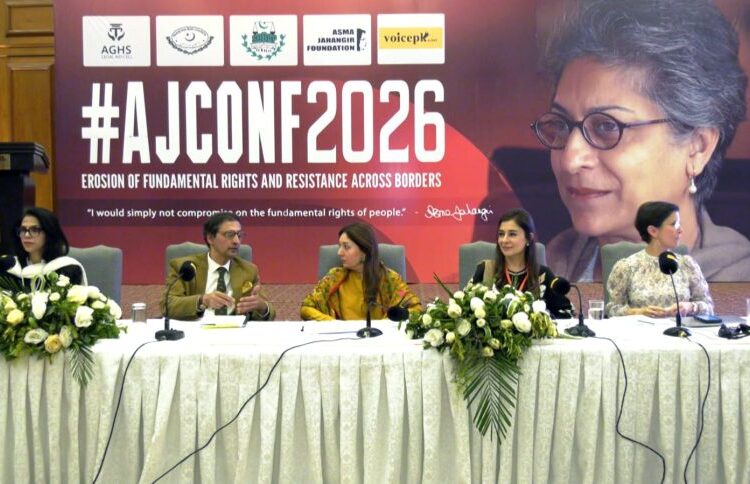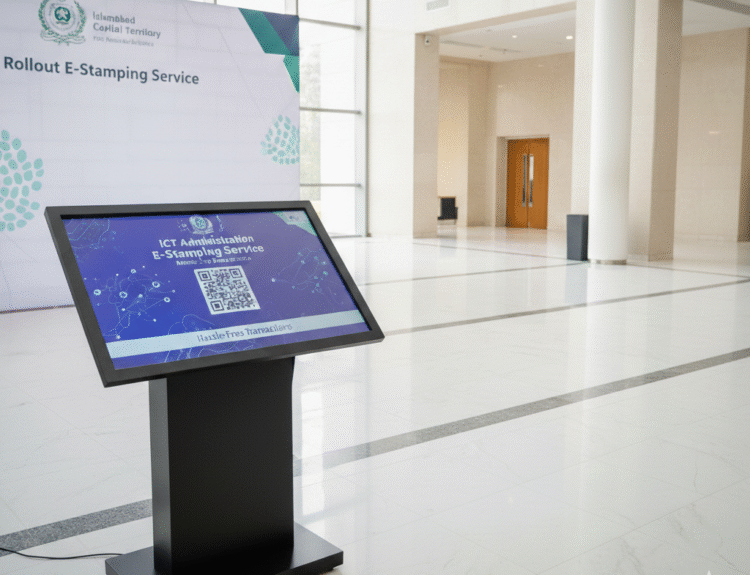The first day of the significant conference on “The Economy of Azad Jammu and Kashmir: Unlocking the Potential” successfully concluded at the Main Auditorium, King Abdullah Campus, Azad Jammu and Kashmir University (AJKU). The joint event of PIDE and AJKU featured a series of discussions aimed at enhancing the socioeconomic conditions of the region through strategic development.
Dr. Nadeem ul Haque, Vice Chancellor of the Pakistan Institute of Development Economics (PIDE), emphasized the critical role of ideas in driving national progress. He noted that the responsibility for development does not solely rest with universities but with the collective efforts of society as a whole. Dr. Haque expressed concern over the lack of active intellectual engagement in Pakistani universities, highlighting the scarcity of seminars and conferences.
He emphasized the value of every idea and question, stating that there is no such thing as a bad idea or question. Dr. Haque underscored the importance of self-reliance and hard work for achieving prosperity. He described the generation of ideas as a collective project and emphasized the importance of developing local solutions using local ideas.
Dr. Haque urged universities to actively involve students in research and to provide them with their own research agendas. He questioned the traditional focus on mineral resources for development, advocating instead for a greater emphasis on ideas and research. Lastly, he posed a thought-provoking question about the ultimate goal of development, suggesting that it should be centered around wellbeing and highlighting the pivotal role of students as valuable assets in this endeavor.
Dr. Shujaat Farooq, Dean of PIDE, emphasized the critical importance of debate and innovative thinking in shaping nations’ futures during a recent conference. Despite boasting 270 universities and over 2.5 million students, Pakistan falls short in fostering a culture of critical thinking and innovation compared to its neighbors like China. Dr. Farooq stressed that debate is the cornerstone of PIDE’s ethos, with initiatives such as webinars serving as exemplars of this commitment. He underscored the need for collaboration between academia, government, and local industries to address pressing economic challenges, including taxation, revenue generation, and tourism promotion. Furthermore, he highlighted the imperative of nurturing indigenous debates and university-level collaborations to stimulate intellectual discourse and address economic disparities. By fostering partnerships and promoting dialogue, Dr. Farooq envisions a future where Pakistan’s youth are empowered to drive positive change and contribute to the nation’s economic prosperity.
Earlier, the conference was inaugurated by Prof. Dr. Muhammad Kaleem Abbasi, Vice-Chancellor of AJKU, with an inspiring welcome address. The opening remarks were followed by a vision presentation from Dr. Mukhtar Ahmed, Chairman of the Higher Education Commission, who discussed key reforms and strategies to tap into the economic potential of Azad Jammu and Kashmir.
A pivotal session titled “Economy of AJK: Unlocking the Potential” took center stage, moderated by Dr. Nadeem ul Haque, Vice Chancellor, Pakistan Institute of Development Economics (PIDE). Esteemed speakers, including Khawaja Masood, Managing Director of the Hydroelectric Board, and Dr. Khalid Rafiq, Director General of the IT Board, provided valuable insights into the sectors of power generation, tourism, and digital economy. They emphasized the need for fiscal sustainability and innovative approaches to harnessing the region’s resources.
The potential of AJK’s tourism industry was also a major focus, with discussions led by Mrs. Midhat Shahzad, Additional Chief Secretary, and Mr. Zulfiqar Abbasi, Former Chairman of the Chamber of Commerce. The session was moderated by Dr. Shujaat Farooq, Dean, PIDE, Islamabad.
They explored the unique challenges and opportunities in promoting AJK as a premier tourist destination. In Session-2 on the Economy of AJK: Unlocking the Potential, the discussion centered on Pakistan’s vast economic potential and the persistent gap between potential and actual economic performance. Emphasizing the need to prioritize economic growth beyond political rhetoric, the session highlighted the importance of collective policy frameworks tailored specifically for AJK to ensure long-term growth and prosperity. Key aspects such as fiscal policy and revenue generation strategies were highlighted as important components of this approach. Furthermore, the session explored the untapped economic potential across various sectors, including power generation, tourism, service industries, and the digital economy, stressing the necessity for AJK’s economy to pivot towards these new advancement sectors for sustainable growth.
The first day concluded with a visionary keynote address on the Economy of AJK by Mr. Muhammad Masood Khan, Former President of AJK, which inspired attendees to think broadly about the future economic trajectory of the region.
The first day of the conference has set a constructive tone for meaningful dialogue and action-oriented strategies to drive economic growth in AJK,” said Prof. Dr. Samina Sabir, Chief Organizer of the event. “We look forward to building on these discussions in the coming days.





